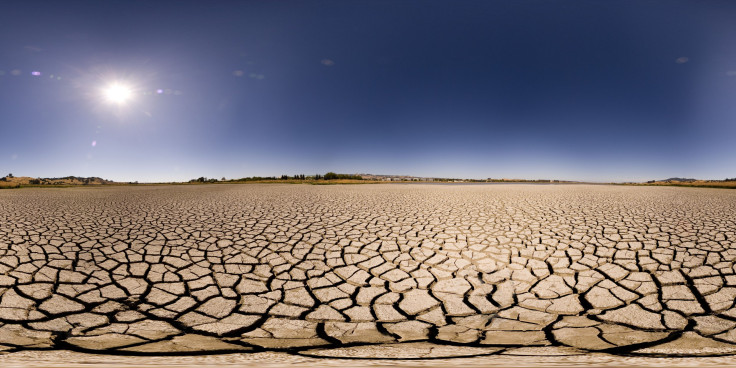Is The California Drought Man Made? They've Lasted Centuries Before And Greenhouse Gasses Aren't Going To Help

After five years of drought in California, vegetation is drying up, streams and riverbeds are starting to crack and residents are praying for moisture.
New research reported Monday suggests that relief could be a long time coming. Californians today may think a half-decade is a lengthy drought, but the region has seen similar troubles in the past — and they’ve lasted for centuries. The current drought looks like it could be aggravated in a different way than ever before, with conditions getting increasingly hotter as a result of more greenhouse gasses produced from humans in the atmosphere.
Researchers from the University of California at Los Angeles used sediment cylinders from the bottom of Kirkman Lake in the Sierra Nevada Mountains to map changes in moisture levels and conditions going back thousands of years. By analyzing the sediment for a range of indicators of conditions like mollusk shell fossils, pollen and charcoal deposits, they were able to determine things like how deep or warm the water was and whether wildfires were prevalent at those times.
They found there was a period between 6,000 BC and 1,000 BC that saw extreme drought and then another between 950 and 1250 CE. Scientists were able to then compare that data to Pacific Ocean activity (also determined from sediment deposits from the bottom of the ocean) and the Earth’s regular axial wobble to find that those time frames corresponded to natural variations in weather events or sun exposure that naturally abated, ending the droughts.
But there’s an important difference this time around: Greenhouse gasses. While California has experienced seemingly-natural Pacific Ocean temperatures that have led to particularly low precipitation, the heat-trapping gasses in the atmosphere are leading to a warming effect that scientists worry will prolong the drought.
“I think we would find a way to keep our cities going through prolonged drought, but we’re not going to engineer a way to conserve or preserve the ecosystems of the state,” Glen MacDonald, a professor at UCLA, said.
As a leading provider of agriculture, the drought in California has implications for the rest of the country. The Golden State provides the majority of American fruits, vegetables and nuts in the country. Farmers will likely be able to manage the drought with engineering and irrigation but researchers weren’t convinced that other wildlife in the state could survive.
© Copyright IBTimes 2024. All rights reserved.






















